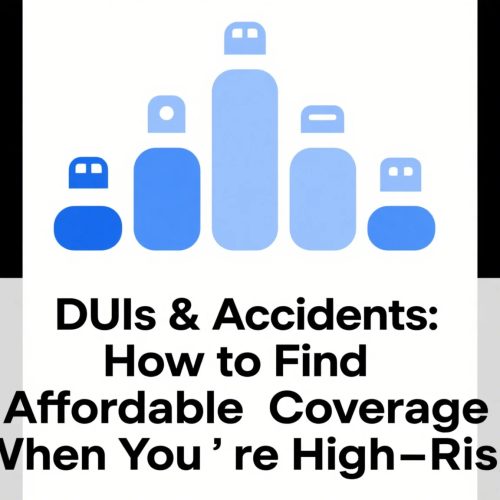When You Need Non-Owner Car Insurance
Non-owner car insurance is a type of coverage designed for individuals who do not own a vehicle but may still need protection in specific situations. This policy is particularly useful for those who borrow cars occasionally, rent vehicles for trips, or are involved in test drives. Here are the scenarios where non-owner car insurance is essential.

Occasional Borrowing of a Vehicle
If you frequently borrow a friend or family member’s car, non-owner insurance can provide liability coverage. This ensures that if you’re involved in an accident, you won’t be held financially responsible for damages. It’s especially important if the vehicle’s owner doesn’t have sufficient coverage or if you’re driving a car you don’t typically use.
Renting a Car
When you rent a car, the rental company often offers insurance, but it might not be comprehensive. Non-owner insurance can fill the gaps, offering coverage for damages to your personal vehicle if you’re involved in an accident while renting. It also covers medical expenses and other liabilities beyond the rental company’s policy.
Test Driving a New Car
Test driving a vehicle you intend to purchase is a crucial step, but it can be risky. Non-owner insurance is a wise investment in this case. It protects you if an accident occurs during the test drive, ensuring you’re not left with unexpected expenses.
Temporary Coverage After an Accident
If your own vehicle is damaged in an accident and you need to borrow another car temporarily, non-owner insurance can provide the necessary coverage. This ensures you can continue your daily routine without financial strain.
Driving a Shared Vehicle
In shared living situations, where multiple people use the same vehicle, non-owner insurance can be a smart choice. It offers protection for each user, reducing the risk of disputes or financial liability in case of an accident.
Benefits of Non-Owner Car Insurance
Non-owner insurance is cost-effective for temporary use and provides peace of mind. It’s ideal for occasional drivers who don’t need full-time coverage. Additionally, it’s often more affordable than adding a driver to an existing policy or paying for a rental company’s insurance.
When Non-Owner Car Insurance Might Be a Waste
While non-owner car insurance is beneficial in certain situations, there are times when it’s unnecessary or redundant. Understanding these scenarios can help you avoid unnecessary expenses.
If You Already Have Comprehensive Coverage
If you’re a frequent borrower of a vehicle and the owner’s policy already includes comprehensive coverage for additional drivers, purchasing non-owner insurance might be redundant. Check the policy details to see if you’re already covered.
Short-Term Use
For brief trips or single uses, non-owner insurance might not be worth the cost. If you’re only borrowing a car for a day or two, the insurance cost could outweigh the potential savings or protection.
When You Don’t Need Full Coverage
If you’re only concerned about liability coverage, you might not need non-owner insurance. Many rental companies offer basic liability coverage, which could suffice for your needs.
If You Have Other Insurance Options
Consider alternative options like using the owner’s insurance or adding a driver to your own policy. These might be more cost-effective or provide better coverage than non-owner insurance.
Temporary Rental Insurance
Some rental companies offer short-term insurance plans that are more affordable than non-owner insurance. If you’re only renting for a few days, this could be a better option.
Alternatives to Non-Owner Car Insurance
Before deciding, explore other options such as adding yourself to an existing policy, using the rental company’s insurance, or relying on your own coverage if you’re the primary driver. These alternatives might offer better value or coverage tailored to your needs.
Non-owner car insurance is a valuable tool for specific situations but isn’t a one-size-fits-all solution. Evaluate your needs and circumstances to determine if it’s the right choice for you. By understanding when to use non-owner insurance and when to look for alternatives, you can make informed decisions that protect your finances and peace of mind. Always compare options and consult with an insurance professional to ensure you’re making the best choice for your situation.
